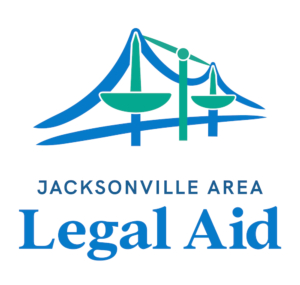
The client’s name has been changed for privacy; photo is not the client.
At 17,“James Gadbury,” not his real name, enlisted in the Marines, drawn by the desire to challenge himself and step out of his comfort zone.
During his three years of service, he was stationed at Naval Submarine Base Kings Bay in Georgia, a stressful environment where understaffing left him little time for rest, and where a toxic command culture brushed aside his mental and physical health concerns.
After an incident involving other Marines occurred in his presence, Gadbury took responsibility for not intervening, which resulted in him serving time in the brig and receiving a demotion in rank.
Although it was the only blemish on an otherwise stellar record of service, his plea agreement unexpectedly culminated in an “other-than-honorable” discharge, leaving him devastated and grappling with guilt and grief over his lost military career.
Unfortunately, such instances are not uncommon, and the consequences can be life-altering.
According to a 2020 study by Jessica Lynn Wherry, a veteran and, at that time, a law professor at Georgetown University Law Center, “thousands of former military servicemembers have been discharged with other-than-honorable discharges due to misconduct that can be traced to a mental health condition,” and in many cases the behavior may have “resulted from a mental health condition rather than willful misconduct.”
Because of the “other-than-honorable” discharge, these veterans face added difficulties, as their discharge status generally makes them ineligible for VA benefits, including disability, education, healthcare, and more. From a social standpoint, “They may also be banned from joining veterans’ service organizations, face challenges in employment, and experience homelessness,” Wherry wrote, which creates a challenging cycle, causing these veterans to be more likely to face additional mental health conditions, and sometimes leading to suicide.
Gadbury’s case illustrates this finding.
“After everything went down, I really got into a depressive state. I was really down on myself,” Gadbury said. “Mentally, I could not handle the fact that I was kicked out. I felt like a loser. I felt like I had let everyone down, including myself. I was really self-loathing. And it was just really hard for me to cope with that.”
After he got out of the military in August of 2018, Gadbury did a lot of soul searching, intending to prioritize his mental health. That was when he discovered that his veterans’ benefits had been taken away, “which really hurt me even more,” he said.
“Everyone talks about their GI Bill, their free education, healthcare, and things like that,” Gadbury said. “So you lose benefits that you felt you earned, and the VA is basically telling you, ‘Hey, you’re not a veteran.’ So that really messed me up.”
Gadbury sought to upgrade his discharge status with the belief that this one incident did not define who he was, nor his entire military career.
“I felt that if I were able to go all in and really show the VA that I’m not really who they say I am, then I would be able to move on,” he said.
But navigating the labyrinthine VA system proved to be a challenge. He submitted the required form, only to be met with denial, and when he sought the VA’s assistance, he only encountered roadblocks.
“Every time I went into a VA, they were like, ‘Do you have your ID?’ and they can’t give me an ID, so I had to relive the incident of my discharge. Constantly having to relive that moment was so painful,” Gadbury said.
The discharge upgrade form Gadbury had submitted provides fewer than 1,000 characters to explain why a correction should be made, leaving little room for describing individual circumstances.
Fortunately, Gadbury was referred to attorney Jacalyn Crecelius in Jacksonville Area Legal Aid’s Veterans Legal Services Unit, who said veterans receive no guidance on how to complete the form, and that even a properly completed form is rarely sufficient to obtain a discharge upgrade.
“There are maybe three to four lines on the form where you explain, and nobody tells you that you can submit more than that,” Crecelius said. “So if a veteran is doing it on their own, they put four lines, and it will inevitably not be enough to get an upgrade.”
JALA’s Veterans Legal Services Unit assists veterans with an array of civil legal issues, including housing, consumer, family law and other everyday problems civilians encounter, as well as discharge upgrades and access to veterans’ benefits.
With help from Crecelius, Gadbury was able to supplement his application for a hearing in front of the Naval Discharge Review Board, which determines whether a service member’s discharge was properly issued, and the hearing was granted.
While Gadbury had initially submitted a statement of only 1,000 characters and 26 pages of supplementary evidence, Crecelius worked with him to create an 11-page brief backed up by 176 pages of medical evidence, narratives, character statements, and letters of support, all outlining how various Department of Defense guidance memos applied to his particular case and supported an upgrade.
“There really aren’t enough thank you’s in the world,” Gadbury said of Crecelius’ advocacy on his behalf.
“Jacalyn provided so much insight about resources that aren’t even out there,” Gadbury said. “She was asking all the right questions as she helped me prepare, she already essentially knew what the Naval Discharge Review Board was going to ask.” He said it was a stark contrast to “me just going in there by myself with no prep, explaining my case, and not knowing what to expect.”
The hearing took place in February in front of a three-member panel composed of a major, an admiral, and a medical doctor. Typically such proceedings last around two hours, but in Gadbury’s case, the hearing ended up being over four hours long, including Gadbury’s own testimony and statements from two supporting witnesses.
Then, all he could do was wait.
Throughout the entire undertaking of seeking the upgrade and waiting for the results, Gadbury’s faith and his family helped him keep going.
“I had done so much soul searching at that point, and I found myself where I wanted to be, especially after having my son, who is three years old now,” he said. “I have to be there for him, and I think he gave me a different perspective and helped me find more of my purpose as well. I knew at the end of the day I had done all I could do.”
His advice to other veterans facing similar situations? “Just keep going. It’s so hard. But keep going. You know who you are at the end of the day.”
Because of Gadbury’s perseverance, three months later, his discharge status was upgraded to “general, under honorable conditions,” allowing him access to VA healthcare and disability benefits.
With this arduous chapter of his life now coming to a close, Gadbury discussed possibly returning to Kings Bay Base for a visit as a new person.
“It’s just another closure thing, and I would like to show my son that part of my life too,” he said.
“For the longest time, I did not feel like a veteran,” he said. “It was demoralizing for me. When I got out, everything was taken from me.”
But now, after years of trials that tested what kind of person he is, he shares his story of service and redemption as a proud veteran.
About Jacksonville Area Legal Aid
Jacksonville Area Legal Aid is a nonprofit law firm focused on delivering economic, social, and housing justice to low-income and at-risk individuals and families on the First Coast.
If you are an attorney wanting to volunteer with veterans’ legal issues, contact JALA Pro Bono Director Aaron Irving, at (904) 356-8371, Ext. 363, or Aaron.Irving@jaxlegalaid.org.
###



